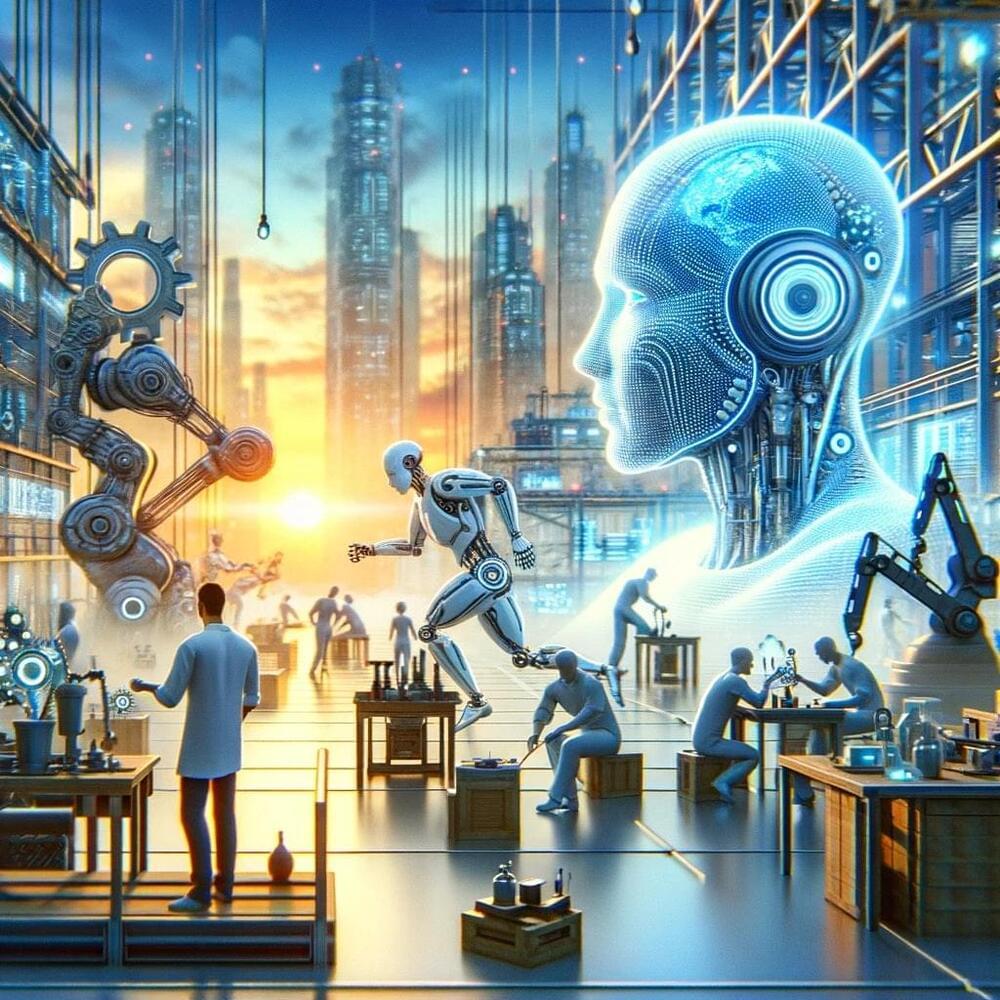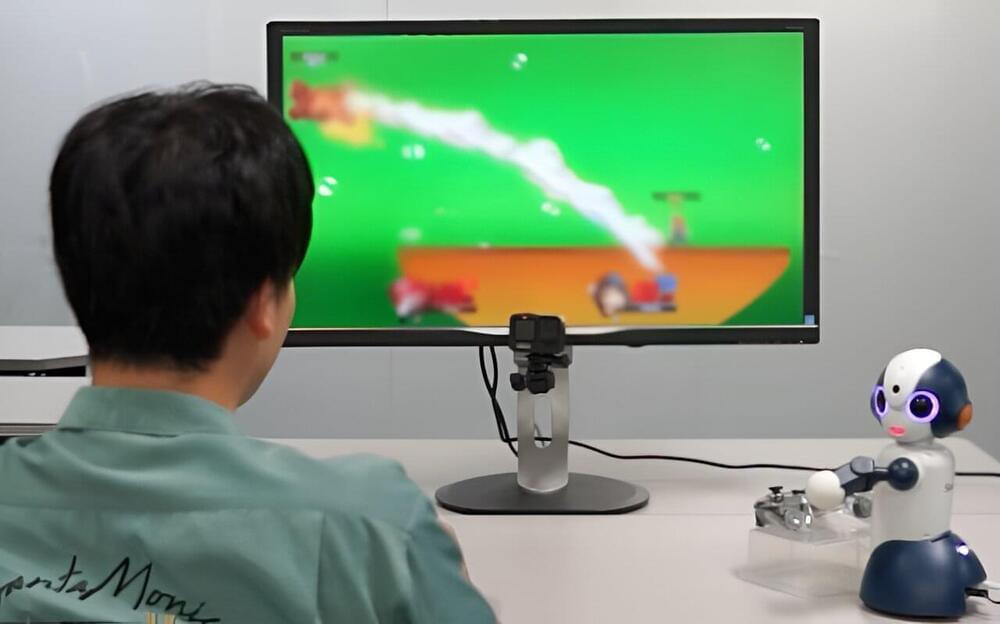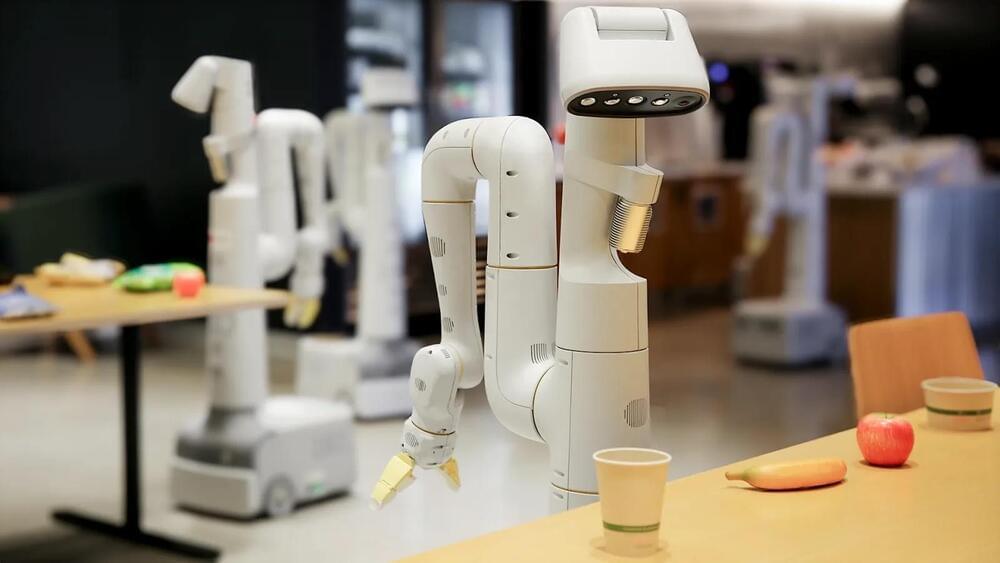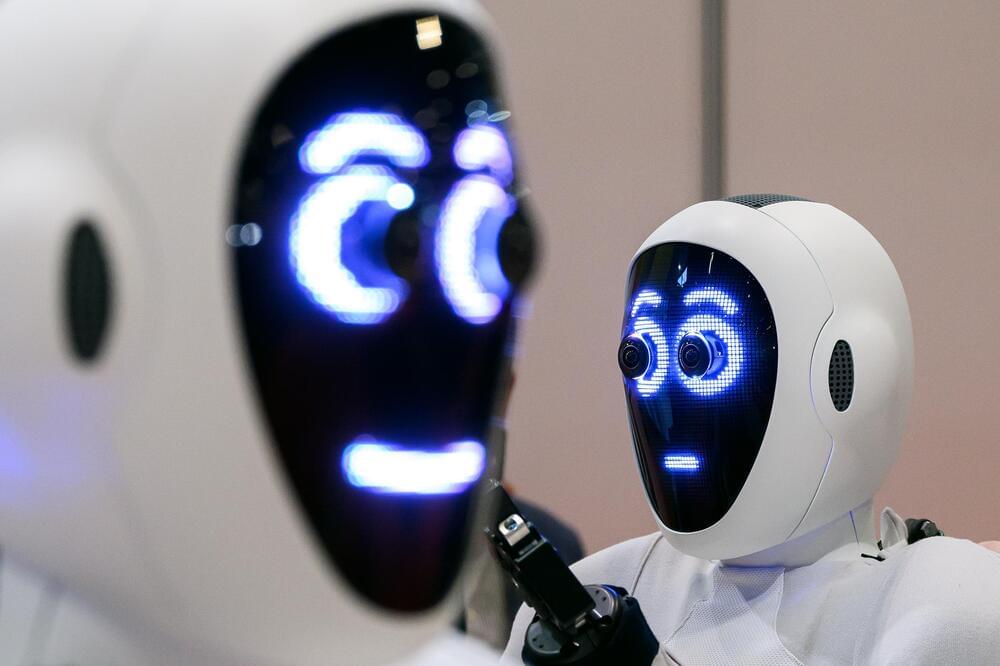“In most scenarios, AI will likely worsen overall inequality,” said IMF Managing Director Kristalina Georgieva.



#ManualLabor #CognitionServices #SyntheticMind.
The future of human labor in the age of AGI and automation, as discussed in the articles from Digital Habitats, suggests significant shifts in both manual and cognitive work.
Automation and AI advancements are predicted to take over a substantial portion of human jobs within the next 5 to 20 years.

In recent years, engineers have developed a wide range of robotic systems that could soon assist humans with various everyday tasks. Rather than assisting with chores or other manual jobs, some of these robots could merely act as companions, helping older adults or individuals with different disabilities to practice skills that typically entail interacting with another human.
Researchers at Nara Institute of Science and Technology in Japan recently developed a new robot that can play video games with a human user. This robot, introduced in a paper presented at the 11th International Conference on Human-Agent Interaction, can play games with users while communicating with them.
“We have been developing robots that can chat while watching TV together, and interaction technology that creates empathy, in order to realize a partner robot that can live together with people in their daily life,” Masayuki Kanbara, one of the researchers who carried out the study, told Tech Xplore. “In this paper, we developed a robot that plays TV games together to provide opportunities for people to interact with the robot in their daily lives.”

“Rather than seeing the organization as a machine, we need to see it as a collection of clever apes.” Psychologist Robin Dunbar’s latest book argues companies are social groups that can’t be perfected like a machine.
What is it about working life that can make us feel so alienated and isolated, and what can we do to prevent it? In The Social Brain: The Psychology of Successful Groups, the evolutionary psychologist Robin Dunbar joins forces with Tracey Camilleri and Samantha Rockey, associate fellows at Oxford’s Saïd Business School, to apply Dunbar’s own scientific discoveries about human cooperation to our work lives. The idea is that, in order to perform our jobs more effectively, we need to go with, and at times go against, the grain of human nature. The authors home in on what makes us best work together, given the central importance of groups throughout our evolutionary history.
Dunbar spent the better part of two decades, starting in the 1970s, studying wild monkeys in Africa to understand why some species develop their own societies. His close contact with our primate cousins gave him a new perspective from which to approach questions about human nature, and that led him, in 1998, to propose the “social brain hypothesis”—the idea that keeping track of who’s who, and cooperating effectively, takes considerable brain power.

Introducing AutoRT, SARA-RT and RT-Trajectory to improve real-world robot data collection, speed, and generalization.
Picture a future in which a simple request to your personal helper robot — “tidy the house” or “cook us a delicious, healthy meal” — is all it takes to get those jobs done. These tasks, straightforward for humans, require a high-level understanding of the world for robots.
Today we’re announcing a suite of advances in robotics research that bring us a step closer to this future. AutoRT, SARA-RT, and RT-Trajectory build on our historic Robotics Transformers work to help robots make decisions faster, and better understand and navigate their environments.

Here’s my new Opinion article for Newsweek on AI!
Like so many in America, I watch astounded as generative artificial intelligence (AI) evolved at lighting speed in 2023, performing tasks that seemed unimaginable just a few years ago. Just last month, a survey found that nearly 40 percent of more than 900 companies were planning to cut jobs in 2024 in part because of AI. If robotics takes a giant leap in the next 12 months, as some suspect, then the survey might end up being too conservative. Generative AI combined with humanoids, which many companies are racing to turn out, is a game changer. Construction jobs, physician jobs, police jobs, and many more will soon be at stake.
Clearly, capitalism is facing a crisis. For years, I have advocated for a Universal Basic Income (UBI), as a way to transition society into the AI age. My method was by leasing out the trillions of dollars worth of empty U.S. federal land to big business, and using some of the proceeds to pay for a basic income for every American. However, any method of a basic income will now help offset the loss of jobs AI will bring.
But recently, chatter about something else is being thrown around in internet chat rooms, in congressional halls, and in arguments at holiday dinner tables: nationalizing AI.
It’s a bad idea. For starters, I don’t want big government in the innovation business; it already has a hard enough time trying to keep people out of poverty. Right now, 1 in 5 kids in the U.S. is going to bed hungry or malnourished at night, and America’s homeless problem is the worst it’s been in my 50 year lifetime.

Xerox was once a synonym for copying. But those halcyon days are long gone for the office equipment company founded in 1906.
Now the company plans to cut 15% of its workforce in the first three months of this year as part of its “reinvention” plans.
Xerox has about 23,000 staff, according to its annual report, meaning thousands will be let go.

Just as healthy organs are vital to our well-being, healthy organelles are vital to the proper functioning of the cell. These subcellular structures carry out specific jobs within the cell; for example, mitochondria power the cell, and lysosomes keep the cell tidy.
Although damage to these two organelles has been linked to aging, cellular senescence, and many diseases, the regulation and maintenance of these organelles have remained poorly understood. Now, researchers at Osaka University have identified a protein, HKDC1, that plays a key role in maintaining these two organelles, thereby acting to prevent cellular aging.
There was evidence that a protein called TFEB is involved in maintaining the function of both organelles, but no targets of this protein were known. By comparing all the genes of the cell that are active under particular conditions and by using a method called chromatin immunoprecipitation, which can identify the DNA targets of proteins, the team was the first to show that the gene encoding HKDC1 is a direct target of TFEB, and that HKDC1 becomes upregulated under conditions of mitochondrial or lysosomal stress.

According to Candy, the rise of AI would instead put a premium on soft skills like critical and creative thinking.
“Questioning, creativity skills, and innovation are going to be hugely important because I think AI’s going to free up more capacity for creative thought processes,” he told Fortune earlier.
It’s not just jobs in tech, though. Candy said that advances in AI image-generation technology could also affect those working in the arts.
